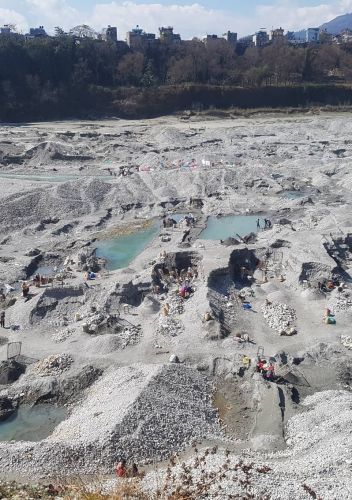
Duration:01.04.2018-31.06.2021
The contemporary world is often characterized by great uncertainty and numerous crises, including armed conflict and natural disasters. In the world’s poorest regions, the effects of these incidents are felt ever more strongly. This project focuses on one such country: Nepal, which in more recent times has witnessed both an armed Maoist insurrection and a devastating earthquake. The research takes an anthropological perspective on industrial development in such a milieu of great uncertainty and crises, foregrounding the intersections between the economy, revolutionary change and natural disaster.
The aim of the project is to make an empirical as well as theoretical contribution to the study of contemporary industrialization processes in times of great uncertainty by highlighting the complex ways in which both armed conflicts and natural disasters shape labour relations in an industrial environment. Instead of searching for grand alternative models for the contemporary predicament of industrial labour in the global south (Mollona et al. 2010), this project focuses on concrete local industrial field sites in Nepal, which are marked by a history of armed conflict and natural disaster. In this milieu of great uncertainty, which seems characteristic of many places in the global South, the project aims to develop an ethnographically informed theory for the grasp of industrialization under conditions of great uncertainty, contributing to an understanding of industry both as a site for the active reconciliation of political conflict and as a site of constant innovation in a post-disaster environment.
This study will be primarily based on a nine month long ethnographic fieldwork within food factories in Kathmandu and in their immediate environment. Over the course of nine months, I intend to visit all factories within the area and conduct surveys with employers, employees and labour associations to get a general overview of labour conditions. One of my aims is to understand how workers conceptualize, understand and evaluate their work at different levels of the industrial hierarchy and in different spatial arenas (within/outside the factory). I will select two or three enterprises that represent different types of ‘shop floor’ culture for extensive investigation that will continue throughout the fieldwork. Thus, a major part of the research will be a comparative study of different shop floors within one area.
Industrialization in times of political crisis and disaster also represents one of the crucial issues at the periphery of the South Asian continent in other countries such as Pakistan and Bangladesh. All two have been hit by a number of political crises and disasters (for example, the rise of militant armed Islamist militias and flooding in both Pakistan and Bangladesh) whose impact on industrial development must therefore be addressed from an academic perspective as well. Research in these domains can contribute significantly to a deeper understanding of how industrialists, managers and workers deal with these phenomena, as well as to the elaboration of novel approaches at the levels of policy, public debate and community activism.
